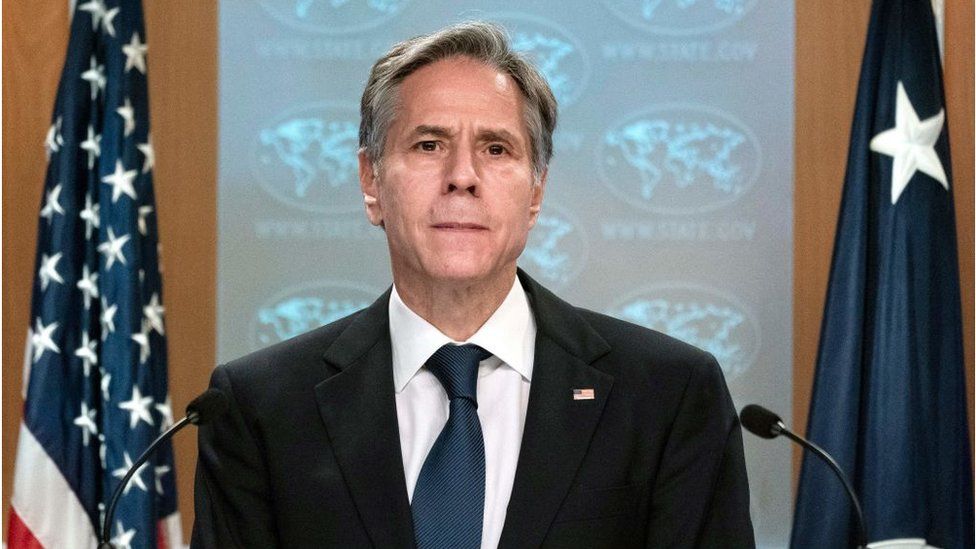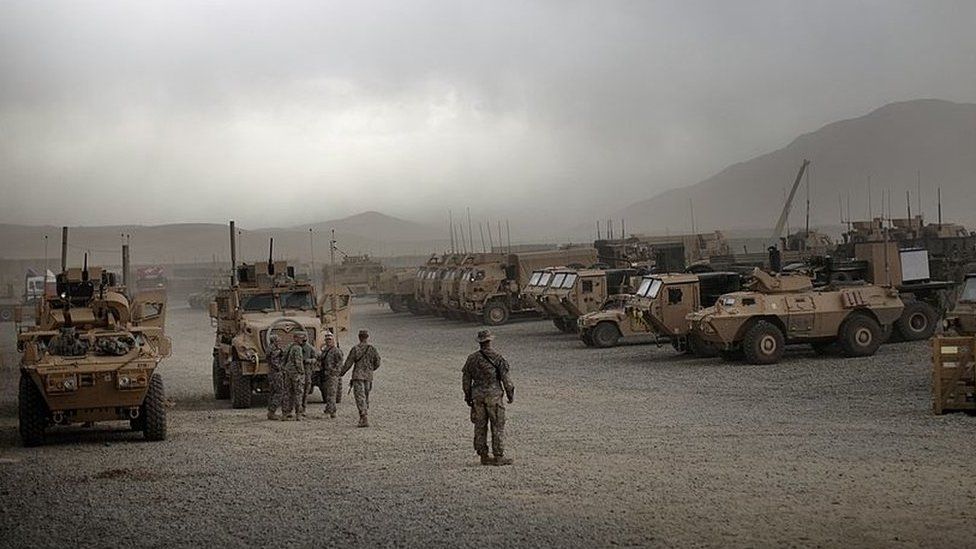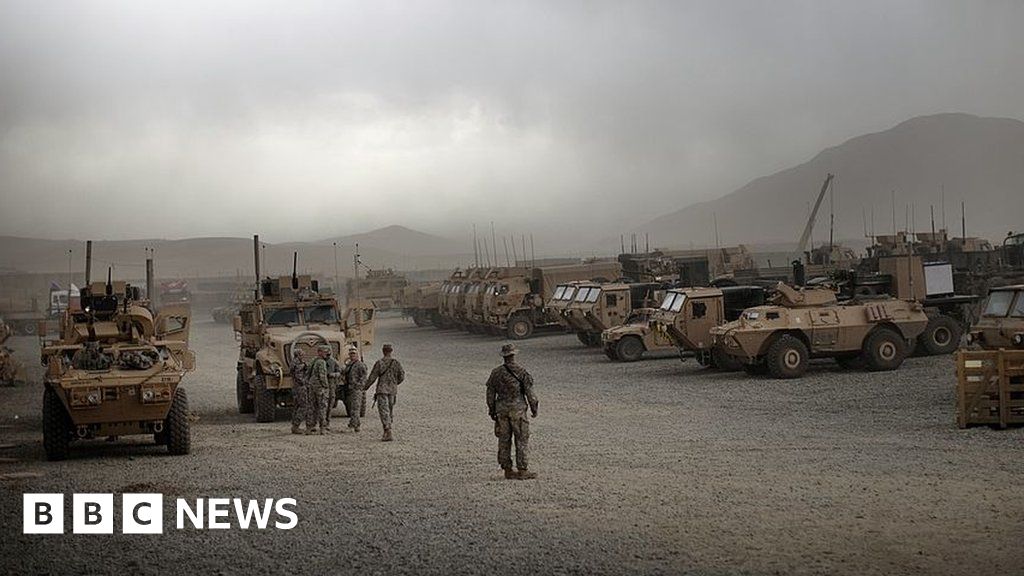
Top US diplomat Antony Blinken has defended the chaotic Afghanistan pull-out in the first official testimony to members of Congress since the exit.
The Secretary of State has faced particular criticism regarding the Americans and allies left behind.
Republicans on Monday described the exit as a humiliating loss to the Taliban. Democrats focused on the US-Taliban deal set by Donald Trump.
Mr Blinken argued staying longer would not have made a difference.
In nearly 20 years of war, more than 6,000 Americans and 100,000 local Afghans were killed, at an estimated cost of more than $2tn (£1.4tn).
Amid criticism at home and from allies abroad, Democrats and Biden officials have tried to shift focus away from the final days in Afghanistan. They instead say the loss was due to mistakes made over the course of America’s longest war.
Republicans during the hearing clashed with Mr Blinken over the fate of Afghan allies “abandoned” in Kabul, increased terror threats and human rights concerns with the Taliban back in power.
Here are the key questions lawmakers asked during Monday’s hearing – and how Mr Blinken defended the decision to leave.
Did President Biden ignore intelligence?
In his opening remarks, Mr Blinken echoed President Joe Biden: “If 20 years and hundreds of billions of dollars in support, equipment, and training did not suffice, why would another year, or five, or ten, make a difference?”
He also emphasised that no US military or intelligence officials thought that Afghanistan would fall so quickly.
But Michael McCaul, the top Republican on the House Foreign Affairs Committee, decried the pull-out as “an unconditional surrender to the Taliban” and argued it would not have happened if Mr Biden had listened to military advisers.
“We are now at the mercy of the Taliban’s reign of terror,” Mr McCaul said.
How many Americans are left in Afghanistan?
Questions remain over exactly how many Americans remain in Afghanistan, and numerous lawmakers from both sides asked Mr Blinken for an exact figure.
“As of last week, there were about 100 American citizens in Afghanistan who told us they wish to leave the country,” said Mr Blinken, adding that the number represents “a snapshot in time.”
He noted that last week, the US offered evacuation “seats” to 60 of them, and only 30 accepted.
No figure was given for the number of US allies that are still in the country.
Will the US recognise the Taliban rule?
A major question that remains is whether the US will formally recognise the Taliban-led government.
“If they want to seek any legitimacy, or any support, it starts with freedom of travel,” Mr Blinken said, as he confirmed that charter flights have not been allowed to depart from the city of Mazar-i-Sharif.
“It is the de facto government of Afghanistan. Those are just the facts.”
He added that the international community holds “significant leverage” over the Taliban, due to the country’s reliance on international aid.
Mr Blinken also said that the Taliban has committed to preventing terrorist groups from setting up in Afghanistan.
“That does not mean we will rely on them. We will remain vigilant in monitoring threats.”
Why didn’t Biden renegotiate Trump’s deal?
“We inherited a deadline, not a plan,” Mr Blinken said of that February 2020 agreement.
Mr Trump’s deal saw the US and Taliban halt attacks against each other – however, the Afghan government was not party to the deal. Critics say the deal allowed the Taliban to regroup, leading to their rapid takeover in August.

Democrats on the committee argued that Mr Biden’s hands were tied when he came into office and that the Taliban would attack US troops if the deadline shifted.
In April, Mr Biden decided to move back Mr Trump’s deadline to 11 September – the date of the terror attacks that triggered the US invasion.
“Upon taking office, President Biden immediately faced the choice between ending the war or escalating it,” Mr Blinken argued on Monday.
The Taliban “made very clear that if we moved past that deadline”, it would resume its attacks, he added.
Will the US help Afghan women?
Lawmakers highlighted their concerns over how Afghan women will fare under the Taliban.
Mr Blinken vowed to send $64m in aid to Afghanistan, amid an urgent appeal from the international community to help struggling Afghans as winter approaches.
The money, Mr Blinken pledged, will bypass the Taliban government and go directly to NGOs and local aid groups.
Asked how the US will ensure that the money is not handed over to the Taliban, Mr Biden promised to work with the UN and other international charity groups to provide the aid directly – something that he said is done is other conflict zones around the world.
He added that he planned to establish a position in the State Department dedicated to assisting Afghan women and girls.
It comes amid a Taliban crackdown on freedoms for women. On Sunday, the Taliban announced new rules for female students, including segregation from male pupils and a strict religious dress code.
Secretary Blinken will face a second round of questioning from lawmakers when he goes before the Senate on Tuesday.
